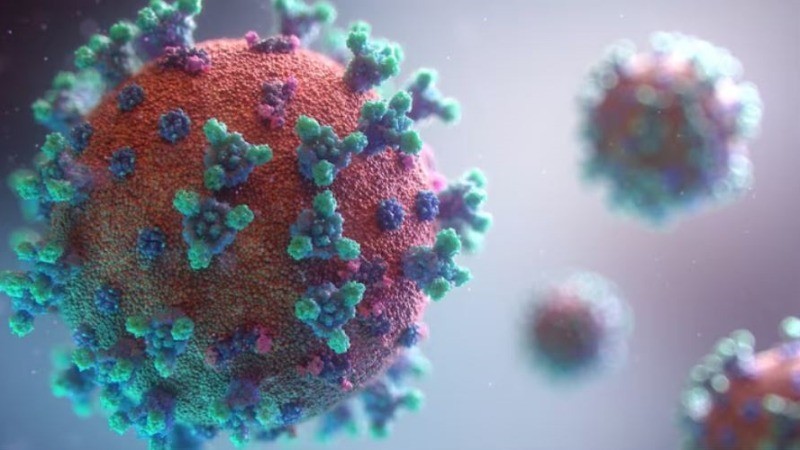
New Delhi: Health officials in Delhi have issued an advisory to ensure readiness against potential health risks posed by the Human Metapneumovirus (HMPV) and other respiratory illnesses. This precaution follows reports of increased respiratory infections in China.
Delhi's Preventive Measures
Dr. Vandana Bagga, Director General of Health Services, convened a high-level meeting with district medical officers and the state programme officer of the Integrated Disease Surveillance Programme (IDSP). The discussion focused on preparing for potential respiratory outbreaks.
Hospitals have been instructed to report cases of Influenza-like Illness (ILI) and Severe Acute Respiratory Infections (SARI) through the IHIP Portal. Strict isolation protocols and universal precautions for suspected cases have been mandated. Additionally, hospitals must document SARI cases and lab-confirmed influenza cases to monitor trends effectively. Essential medicines like paracetamol, antihistamines, bronchodilators, and cough syrups are to be stocked, alongside oxygen supplies for severe cases.
First Case of HMPV Virus Reported in Bangalore Hospital, Reports
As per the latest report, an eight-month-old baby in Bengaluru has been diagnosed with the Human Metapneumovirus (HMPV), marking the first reported case of this virus in India. According to recent reports, the baby has no travel history, raising concerns about the local transmission of the virus. The case was confirmed by the Karnataka Health Department and promptly reported to the Union Health Ministry for further monitoring and action. The detection comes amid a rise in HMPV cases in China, highlighting the need for increased awareness and surveillance.
HMPV is a respiratory virus that can cause cold-like symptoms in mild cases but may lead to severe respiratory infections, particularly in young children, the elderly, and those with weakened immune systems. Health authorities are closely monitoring the situation to prevent potential spread and ensure appropriate response measures.
The Situation in China
China is grappling with a rise in HMPV cases. Social media footage of overcrowded hospitals has sparked concerns of a larger health crisis. However, Chinese health authorities have downplayed the fears, citing seasonal trends in respiratory illnesses.
Kan Biao of the National Health Commission stated that while respiratory infections are common during winter, the overall situation this year is milder compared to previous seasons. The Chinese government has launched monitoring systems for pneumonia of unknown origin to manage the rise in infections.
What is HMPV?
Human Metapneumovirus (HMPV) is a respiratory virus causing cold-like symptoms, such as cough, fever, nasal congestion, and shortness of breath. Severe cases can lead to pneumonia or bronchitis, particularly in children, the elderly, and immunocompromised individuals. The virus belongs to the Pneumoviridae family, which also includes Respiratory Syncytial Virus (RSV).
The virus' symptoms typically appear three to six days after exposure, and while mild in most cases, it can be severe for vulnerable populations.
Monitoring in India
As of now, no HMPV cases have been reported in India, India's Dir-General of Health Services,. Dr. Atul Goel assured the public that it is no cause for alarm. The Union Health Ministry’s NCDC is closely monitoring respiratory infections across the country. Data from 2024 shows no substantial increase in respiratory outbreaks. Indian hospitals are equipped to handle the seasonal rise in such cases.”
Key Differences Between HMPV and COVID-19
Though both HMPV and COVID-19 are respiratory viruses, their severity differs. HMPV primarily causes mild cold-like symptoms, while COVID-19 can lead to severe complications and long-term health effects. HMPV is seasonal, with infections peaking in winter, whereas COVID-19 outbreaks have been less predictable.
Preventive Measures - Currently, there is no vaccine for HMPV, and treatment is limited to managing symptoms. Experts recommend maintaining good hygiene practices, such as frequent handwashing, avoiding close contact with sick individuals, and using tissues or elbows to cover coughs and sneezes.
Global Monitoring - Neighbouring countries like Hong Kong have reported minor HMPV cases, but the World Health Organization (WHO) has not issued any alerts. Despite viral footage of crowded hospitals in China, international health authorities have not confirmed an emergency.
As Delhi braces for the possibility of respiratory illnesses, the emphasis remains on preparedness and public awareness, ensuring that any potential risks are effectively managed.